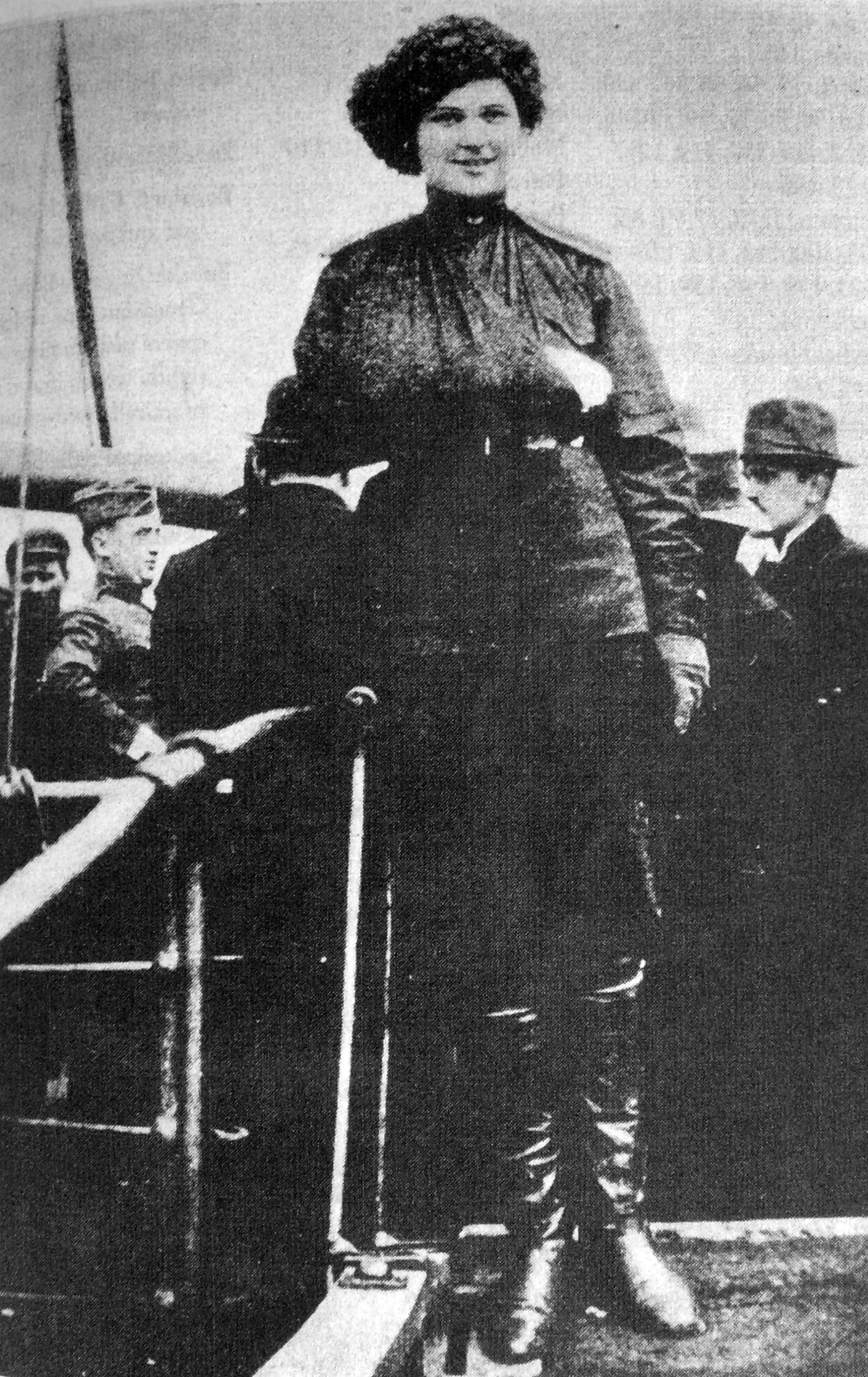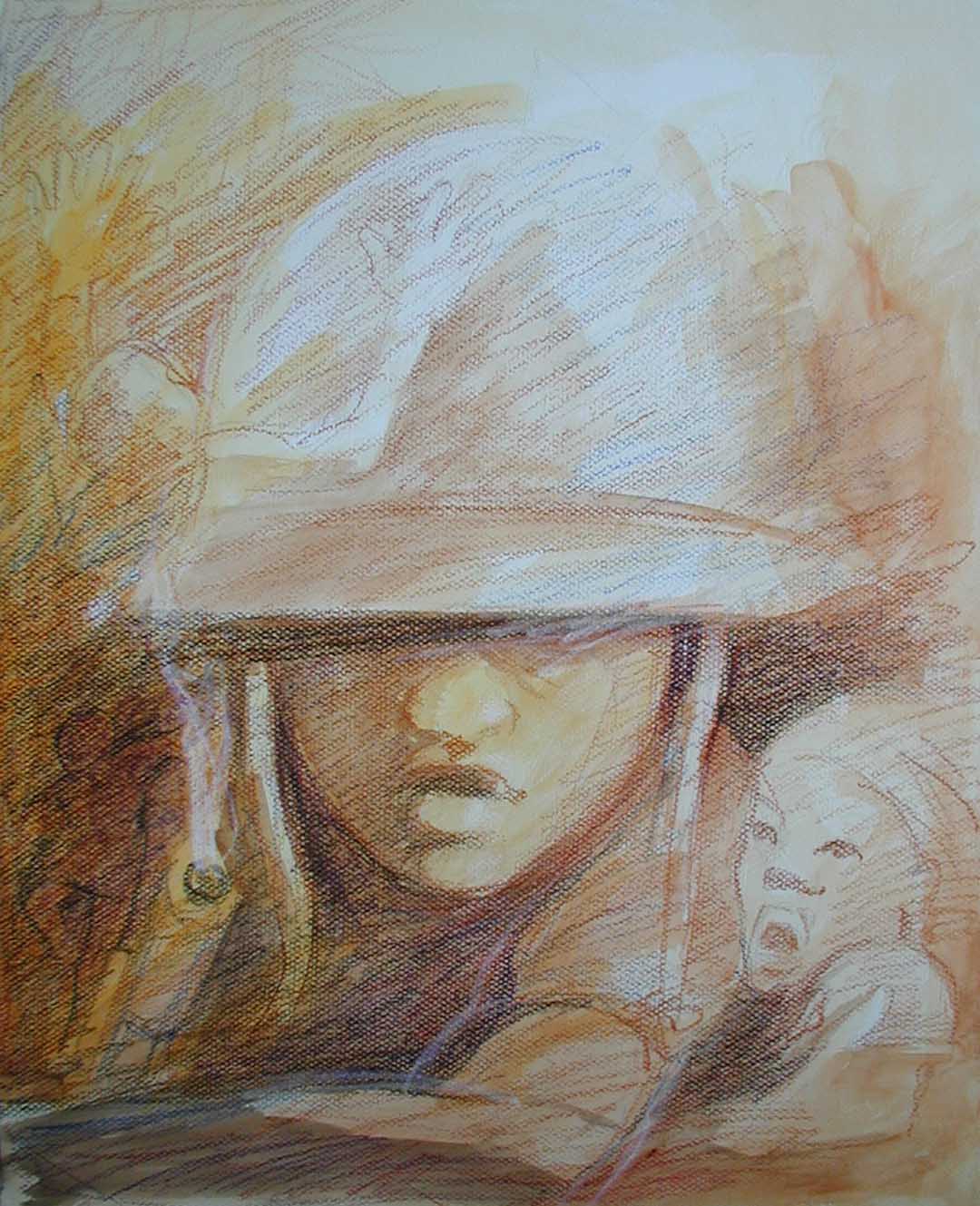|
Clash Of Futures
''Clash of Futures'' is a documentary drama series by Jan Peter and Gunnar Dedio. The series is the continuation of ''14 - Diaries of the Great War'' (2014) and tells the personal stories of thirteen people from all over Europe during the interwar period. The series was part of the eponymous project Clash of Futures. In addition to the series, the project included a theatrical and a radio piece, a book, various Europe-wide special exhibitions and a social media campaign. In the anniversary year of the end of the First World War, the eight-part series first aired September 11, 2018 on Arte. Plot ''Clash of Futures'' depicts the history of Europe between the end of the First World War in 1918 and the German invasion of Poland in September 1939. The multilingual, documentary drama series condenses history into the subjective experience of individuals. It focuses on the fate of thirteen people from nine nations. The protagonists include the Communist Hans Beimler, the silent ... [...More Info...] [...Related Items...] OR: [Wikipedia] [Google] [Baidu] |
Multilingual
Multilingualism is the use of more than one language, either by an individual speaker or by a group of speakers. It is believed that multilingual speakers outnumber monolingual speakers in the world's population. More than half of all Europeans claim to speak at least one language other than their mother tongue; but many read and write in one language. Multilingualism is advantageous for people wanting to participate in trade, globalization and cultural openness. Owing to the ease of access to information facilitated by the Internet, individuals' exposure to multiple languages has become increasingly possible. People who speak several languages are also called polyglots. Multilingual speakers have acquired and maintained at least one language during childhood, the so-called first language (L1). The first language (sometimes also referred to as the mother tongue) is usually acquired without formal education, by mechanisms about which scholars disagree. Children acquiri ... [...More Info...] [...Related Items...] OR: [Wikipedia] [Google] [Baidu] |
Memoirs
A memoir (; , ) is any nonfiction narrative writing based in the author's personal memories. The assertions made in the work are thus understood to be factual. While memoir has historically been defined as a subcategory of biography or autobiography since the late 20th century, the genre is differentiated in form, presenting a narrowed focus. A biography or autobiography tells the story "of a life", while a memoir often tells the story of a particular event or time, such as touchstone moments and turning points from the author's life. The author of a memoir may be referred to as a memoirist or a memorialist. Early memoirs Memoirs have been written since the ancient times, as shown by Julius Caesar's ''Commentarii de Bello Gallico'', also known as ''Commentaries on the Gallic Wars''. In the work, Caesar describes the battles that took place during the nine years that he spent fighting local armies in the Gallic Wars. His second memoir, '' Commentarii de Bello Civili'' (or ''Com ... [...More Info...] [...Related Items...] OR: [Wikipedia] [Google] [Baidu] |
Diary
A diary is a written or audiovisual record with discrete entries arranged by date reporting on what has happened over the course of a day or other period. Diaries have traditionally been handwritten but are now also often digital. A personal diary may include a person's experiences, thoughts, and/or feelings, excluding comments on current events outside the writer's direct experience. Someone who keeps a diary is known as a diarist. Diaries undertaken for institutional purposes play a role in many aspects of human civilization, including government records (e.g. '' Hansard''), business ledgers, and military records. In British English, the word may also denote a preprinted journal format. Today the term is generally employed for personal diaries, normally intended to remain private or to have a limited circulation amongst friends or relatives. The word " journal" may be sometimes used for "diary," but generally a diary has (or intends to have) daily entries (from the Latin ... [...More Info...] [...Related Items...] OR: [Wikipedia] [Google] [Baidu] |
Charles Edward Montague
Charles Edward Montague (1 January 1867 – 28 May 1928) was an English journalist, known also as a writer of novels and essays. Biography Montague was born and brought up in London, the son of an Irish Roman Catholic priest who had left his vocation to marry.Barbara Korte and Ann-Marie Einhaus (eds.) ''The Penguin book of First World War Stories''. London ; New York : Penguin Books, 2007. (pp. 396-7) He was educated at the City of London School and Balliol College, Oxford. At Oxford he gained a First in Classical Moderations (1887) and a Second in Literae Humaniores (1889). In 1890 he was recruited by C. P. Scott to '' The Manchester Guardian'', where he became a leader writer and critic; while Scott was an M.P. between 1895 and 1906 he was ''de facto'' editor of the paper. He married Scott's daughter Madeline in 1898. While working at the paper, Montague became a supporter of Irish Home Rule. Montague was against the First World War prior to its commencement, but ... [...More Info...] [...Related Items...] OR: [Wikipedia] [Google] [Baidu] |
Marina Yurlova
Marina Yurlova (russian: Мари́на Максимилиа́новна Ю́рлова; 25 February 1900 - 1 April 1984) was a Russian child soldier and author. She fought in World War I and later in the Russian Civil War on the side of the anti-communist White movement. Wounded several times, she won the Russian Cross of Saint George for bravery three times. She eventually made her way to Vladivostok, then to Japan and finally to the USA, where she performed as a dancer. Yurlova published her autobiography in three parts: ''Cossack Girl'' (1934, republished in 2010), ''Russia Farewell'' (1936) and ''The Only Woman'' (1937). Biography She was born in Raevskaya, a small village near Krasnodar. The daughter of a colonel of the Kuban Cossacks, she was just 14 years old when her father went to war in August 1914. Caught up in the adventure and tradition of Cossack women following their men to the front, she became a child soldier in the Russian army at age 14. Specifically, ... [...More Info...] [...Related Items...] OR: [Wikipedia] [Google] [Baidu] |
Child Soldier
Children (defined by the Convention on the Rights of the Child as people under the age of 18) have been recruited for participation in military operations and campaigns throughout history and in many cultures. Children in the military, including state armed forces, non-state armed groups, and other military organizations, may be trained for combat, assigned to support roles such as porters or messengers, or used for tactical advantage as human shields or for political advantage in propaganda. Children are targeted for their susceptibility to influence, which renders them easier to recruit and control. While some are recruited by force, others choose to join up, often to escape poverty or because they expect military life to offer a rite of passage to maturity. Child soldiers who survive armed conflict frequently develop psychiatric illness, poor literacy and numeracy, and behavioral problems such as heightened aggression, which together lead to an increased risk of unemploy ... [...More Info...] [...Related Items...] OR: [Wikipedia] [Google] [Baidu] |
May Picqueray
Marie Jeanne Picqueray, known as May Picqueray, was a French anarchist activist, trade unionist, and notable pacifist. She was born on July 8, 1898, in Savenay and died on November 3, 1983, in the 14th district of Paris. She published the pacifist and anti-militarist periodical ''Le Réfractaire'' from 1974 to 1983. Biography In 1921, two anarchists of Italian origin, Nicola Sacco and Bartolomeo Vanzetti, were condemned to death by the American justice system, while shouting their innocence. Despite the mobilization of the left-wing circles, the French press remained silent. To trigger the press campaign, May Picqueray sent a parcel bomb containing a defensive grenade and leaflets to the American embassy. This "initiative" succeeded in mobilizing the journalists, without causing any damage other than material. Despite the magnitude of the worldwide demonstrations in their favor, Sacco and Vanzetti were executed in 1927 - and rehabilitated in 1978. Attracted in her youth to ... [...More Info...] [...Related Items...] OR: [Wikipedia] [Google] [Baidu] |
Anarchist
Anarchism is a political philosophy and movement that is skeptical of all justifications for authority and seeks to abolish the institutions it claims maintain unnecessary coercion and hierarchy, typically including, though not necessarily limited to, governments, nation states, and capitalism. Anarchism advocates for the replacement of the state with stateless societies or other forms of free associations. As a historically left-wing movement, usually placed on the farthest left of the political spectrum, it is usually described alongside communalism and libertarian Marxism as the libertarian wing ( libertarian socialism) of the socialist movement. Humans lived in societies without formal hierarchies long before the establishment of formal states, realms, or empires. With the rise of organised hierarchical bodies, scepticism toward authority also rose. Although traces of anarchist thought are found throughout history, modern anarchism emerged from the Enli ... [...More Info...] [...Related Items...] OR: [Wikipedia] [Google] [Baidu] |
Auschwitz
Auschwitz concentration camp ( (); also or ) was a complex of over 40 Nazi concentration camps, concentration and extermination camps operated by Nazi Germany in Polish areas annexed by Nazi Germany, occupied Poland (in a portion annexed into Germany in 1939) during World War II and the Holocaust. It consisted of #Auschwitz I, Auschwitz I, the main camp (''Stammlager'') in Oświęcim; #Auschwitz II-Birkenau, Auschwitz II-Birkenau, a concentration and extermination camp with gas chambers; #Auschwitz III, Auschwitz III-Monowitz, a Arbeitslager, labor camp for the chemical conglomerate IG Farben; and List of subcamps of Auschwitz, dozens of subcamps. The camps became a major site of the Nazis' Final Solution to the Jewish Question, final solution to the Jewish question. After Germany Causes of World War II#Invasion of Poland, sparked World War II by Invasion of Poland, invading Poland in September 1939, the ''Schutzstaffel'' (SS) converted Auschwitz I, an army barracks, into a p ... [...More Info...] [...Related Items...] OR: [Wikipedia] [Google] [Baidu] |
Pola Negri
Pola Negri (; born Apolonia Chalupec ; 3 January 1897 – 1 August 1987) was a Polish stage and film actress and singer. She achieved worldwide fame during the silent and golden eras of Hollywood and European film for her tragedienne and femme fatale roles and was acknowledged as a sex symbol. Raised in the Congress Kingdom of Poland, Negri's childhood was marked by several personal hardships: After her father was sent to Siberia, she was raised by her single mother in poverty, and suffered tuberculosis as a teenager. Negri recovered, and went on to study ballet and acting in Warsaw, becoming a well-known stage actress there. In 1917, she relocated to Germany, where she began appearing in silent films for the Berlin-based UFA studio. Her film performances for UFA came to the attention of Hollywood executives at Paramount Pictures, who offered her a film contract. Negri signed with Paramount in 1922, making her the first European actress in history to be contracted in Holly ... [...More Info...] [...Related Items...] OR: [Wikipedia] [Google] [Baidu] |








.jpg)